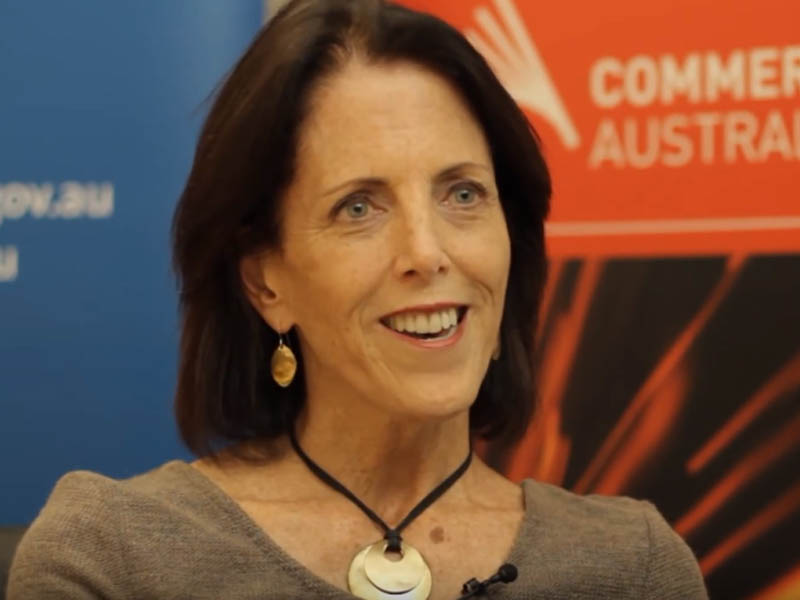StartupAUS has rejigged its board and raised the number of women on the startup advocacy outfit’s 10 member board from two to four as chair Topaz Conway says women still get a raw deal when pitching to investors.
The board refresh sees the arrival of Blue Sky Venture Capital managing director Elaine Stead, along with startup luminary and investment advisor Rachael Neumann, University of Technology Sydney cie-chancellor Attila Brungs and Startup Catalyst CEO Aaron Birkby.
Ms Stead and Ms Neumann beef up the female representation on the StartupAus board, along with current chair Topaz Conway who recently rotated into the chair slot, taking over from Teresa Engelhard, who remains on the board. StartupAus rotates the chair every six to twelve months.

Blokes already on the board are Google ANZ’s Alan Noble, who is a foundation board member, Beanstalk Factory CEO Peter Bradd, another founding member, general partner of CSIRO venture fund Main Sequence Ventures Bill Bartee – another old hand in the ecosystem – and StartupAus chief Alex McCauley.
The overall participation rate for women in the Australian startup scene is around the 25 per cent mark, which is not great.
Ms Conway is also chair of Springboard Enterprises which is dedicated to supporting women building high-growth technology-oriented companies.
Ms Conway says female participation in the startup ecosystem has moved along from just half a decade ago when it was dismal.
“It’s evolved in the last five or six years since I’ve been involved with Springboard. We used to have to beat the bushes to find people to go into the program.”
“Now we recruit relatively easily and we have more applicants than we have spots.”
She believes the uptick in female participation tracks the overall rise in the attraction of the innovation enterprise scene, but women are still unfairly treated by the sector, especially when it comes to getting a fair share of the all holy dollar.
“Being a female founder here or anywhere else we have not fixed the capital problem and we have not fixed the equal opportunity problem,” says Ms Conway.
Blokes can breeze into a pitch session, promise the earth and the stars above and generally be believed, says Ms Conway, whereas women are treated more forensically.
“I’m friends with most of the VCs in town and I am an investor myself and they would all argue that they would invest in anything that’s a good idea,” she says.
“But the bar is different for women.”
“It’s an unconscious bias with some of those guys, but the questions that a female founder gets asked and the expectations they have on a female founder versus a male founder are different.”
“I have been in a room when men have pitched who have the personality for it, and it goes like they have this great idea and we are going to be a billion-dollar company. There’s that entitlement mixed with optimism mixed with [the idea that] they are a good guy to work with.”
“It’s an ‘I love you investor guys and together we are going to change the world’ kind of thing.”
Women tend to stick to the numbers in pitches, and how they intend to make those numbers, given conservative expectations.
“It’s trying to present what she thinks is a very factual thing,” says Ms Conway.
In a male dominated venture community, part of the answer is for women to develop resilience at the centre, and another piece is for government to set and enforce quotas in using female-led companies when it comes to procurement contracts.
“The government has to really have a hard look at their procurement policies and they can put quotas on those and use a percentage of women-led companies. Those are radical things, but they work.”
“I’m definitely about the stick, because the carrot hasn’t worked,” she says.
Ms Conway also believes that general local procurement quotas are part of the answer to helping the startup sector overall.
She also believes we should take advantage of the current anti-immigrant stance by the Trump administration in the US to tweak our tech-oriented immigration programs to try and draw in as many talented people as possible in what could be a once in a presidential timeline opportunity.
Meanwhile, StartupAus is getting ready to release its Crossroads 2017 report in December that looks at the state of play in Australia’s startup sector.
“It’s a pretty critical time right now for startups in Australia,” says Mr McCauley.
While Mr McCauley is very supportive of the Coaltion’s big bang innovation agenda announcements back in late 2015 he says the next wave of Federal government innovation policy is due.
“Pretty soon we will become overdue, I think,” says Mr McCauley.
Do you know more? Contact James Riley via Email.

